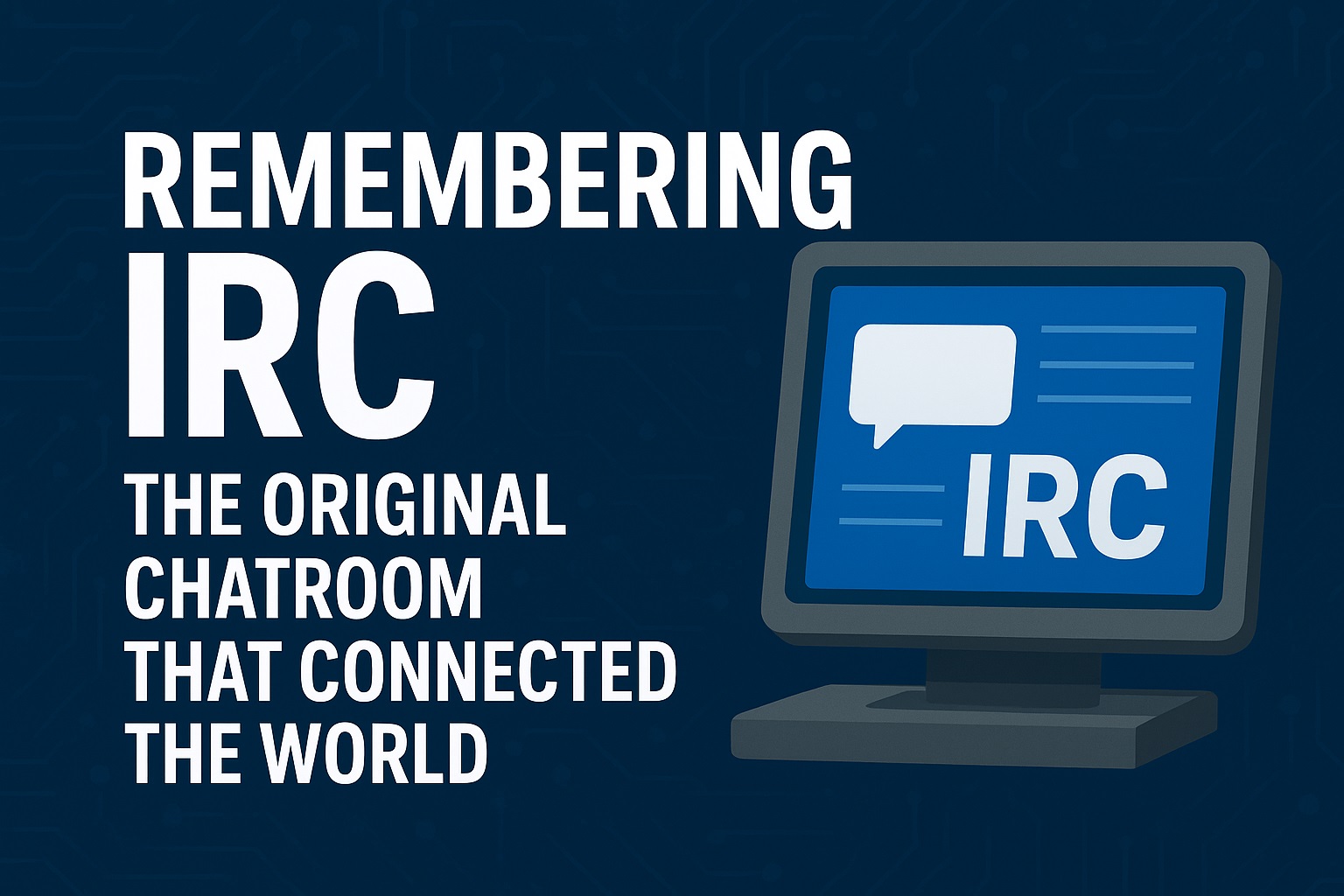Before social media, before WhatsApp, before even Gmail — there was IRC. Internet Relay Chat. For many of us who grew up in the early days of the internet, IRC wasn’t just a chat platform — it was an entire world.
Back then, connecting online wasn’t as simple as tapping an app. You had to dial up, hear that screechy modem sound, and then finally — you were online. And once you were connected, IRC was where the magic happened.
IRC was raw, simple, and beautifully open. No flashy emojis, no typing indicators, no read receipts. Just plain text, usernames, and the thrill of talking to someone halfway across the globe. You’d pick a nickname, join a channel — maybe #music, #tech, or #friends — and suddenly you were part of a living digital community.
People built friendships, debated ideas, shared jokes, and sometimes even fell in love on IRC. There was something pure about it — no algorithms, no ads, no influencer culture. Just real people, in real time, typing thoughts as they came.
Each channel had its own vibe. Some were busy and chaotic, with hundreds of users chatting at once. Others were small and intimate, where a few regulars logged in every night like a digital café. And of course, there were the operators — the guardians of each room — who could kick or ban troublemakers with a single command. It felt like a world governed by trust and curiosity.
What made IRC special was its openness. Anyone could create a server, start a channel, and build a community. It was the original social network — decentralized before “decentralized” became a buzzword. Even the early tech and hacker culture thrived there; many open-source projects, including parts of Linux and Mozilla, had their roots in IRC discussions.
Over time, the world moved on. Instant messengers, forums, and social media replaced those minimal chat windows. Visuals took over from text. Today, most people have never heard of IRC, and that’s a little sad — because it represented something the internet has almost lost: authentic connection.
But for those of us who were there, IRC remains unforgettable. It was where we learned how to communicate online, how to find like-minded people, and how powerful simple conversation could be.
Every once in a while, I still think about those nights spent typing away in dimly lit rooms, the soft hum of a CRT monitor, the green text scrolling by, and that feeling of being part of something new — something global.
IRC might have faded, but it left behind a legacy that shaped the very way we talk online today. It was more than a chatroom — it was the heartbeat of the early internet.

